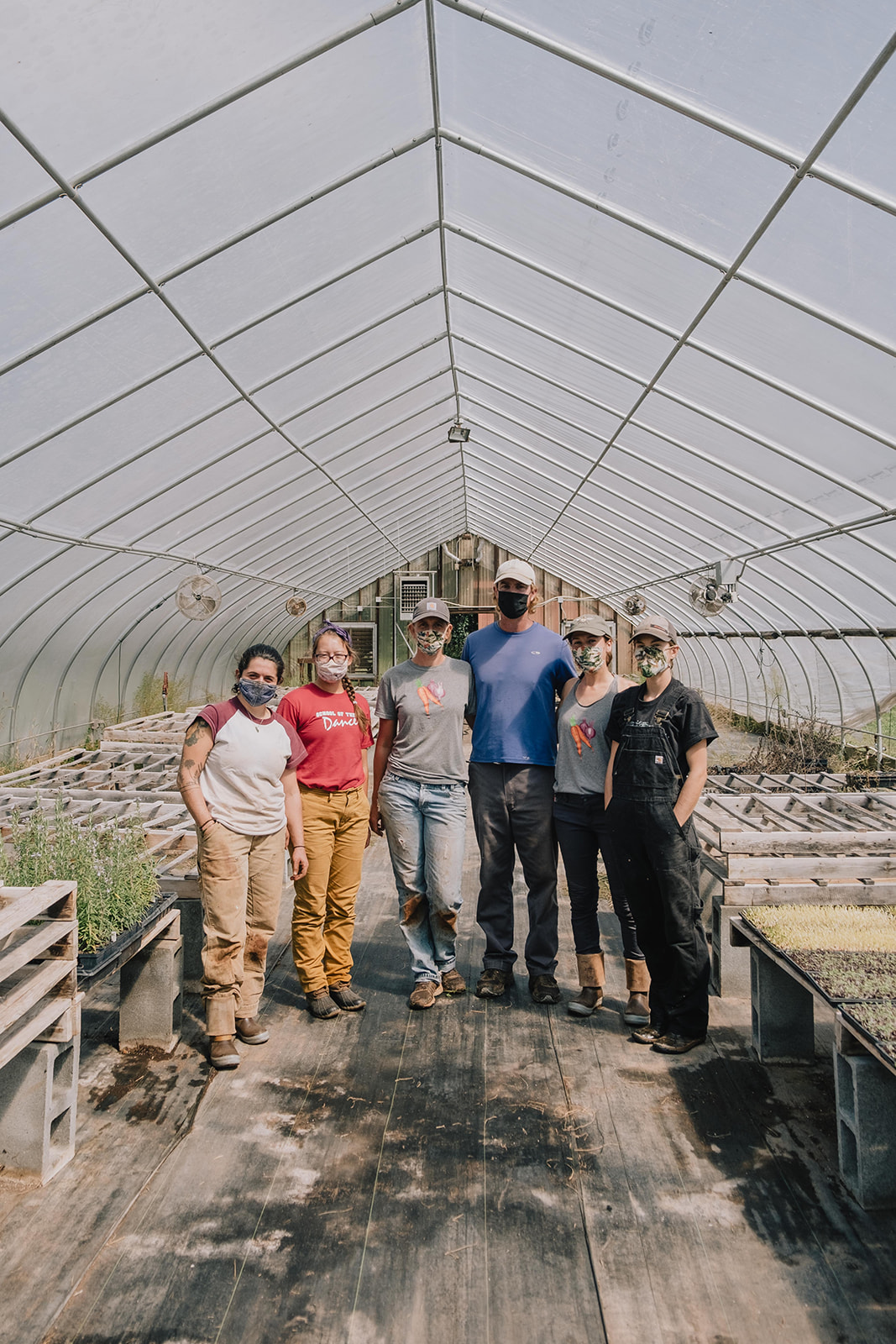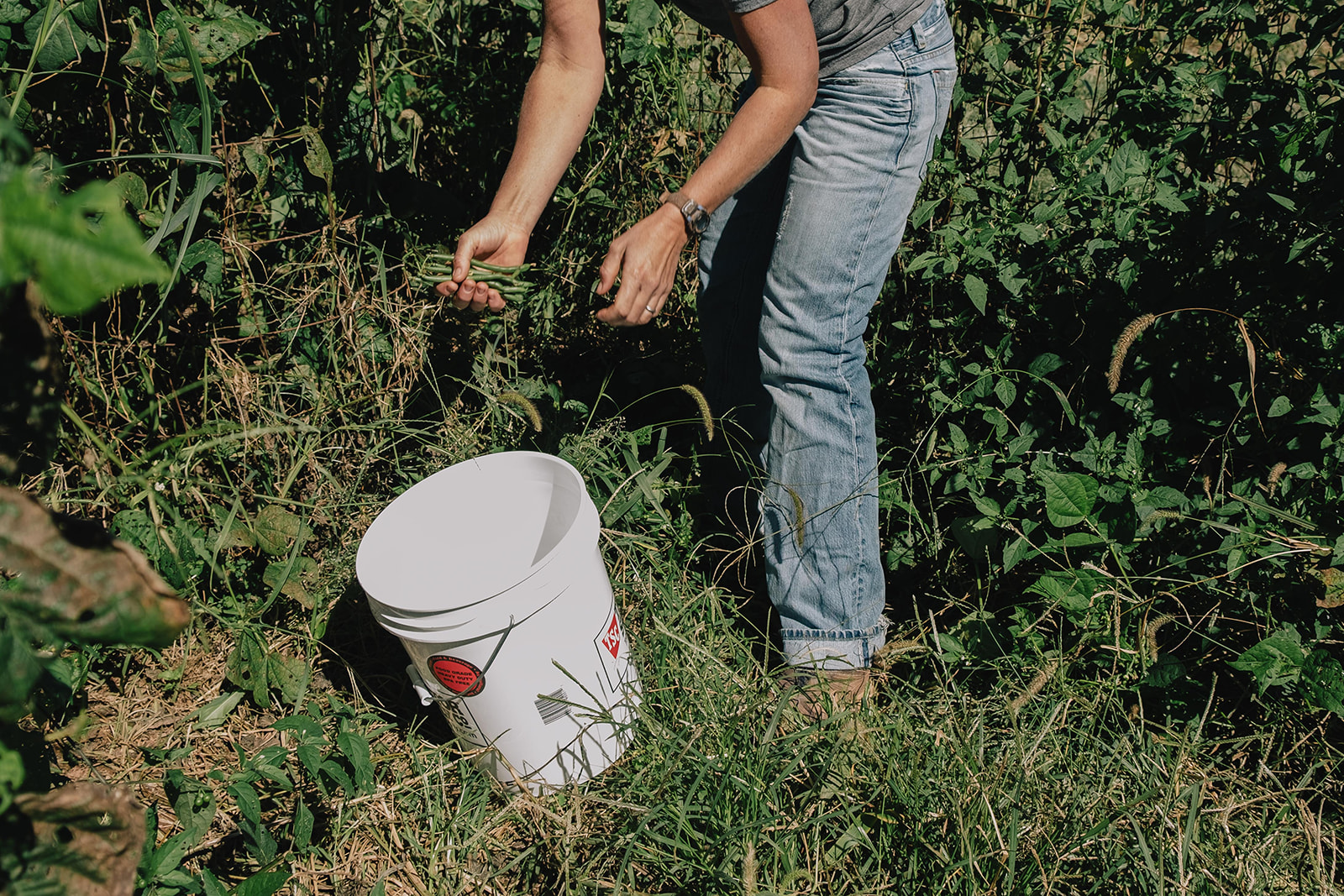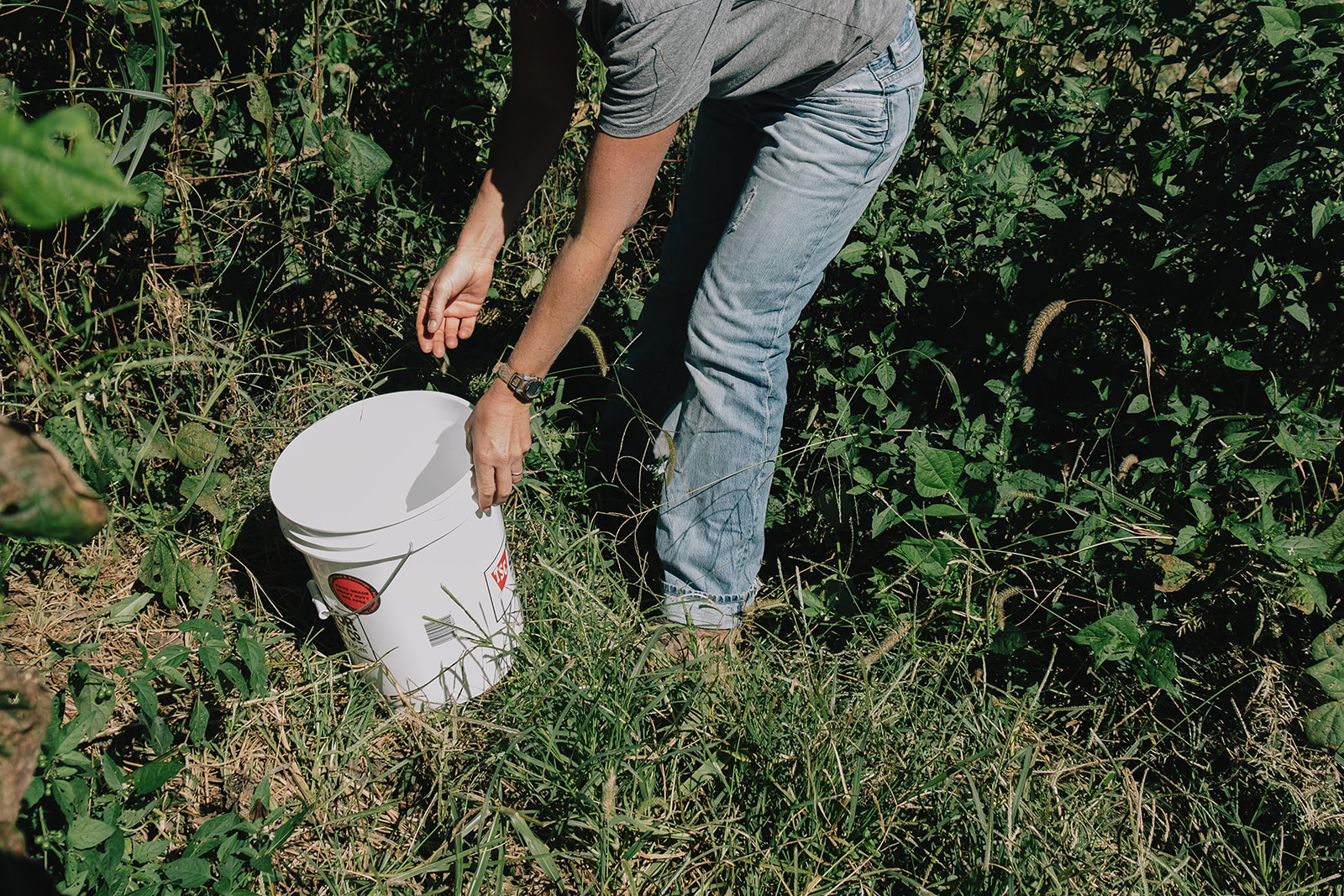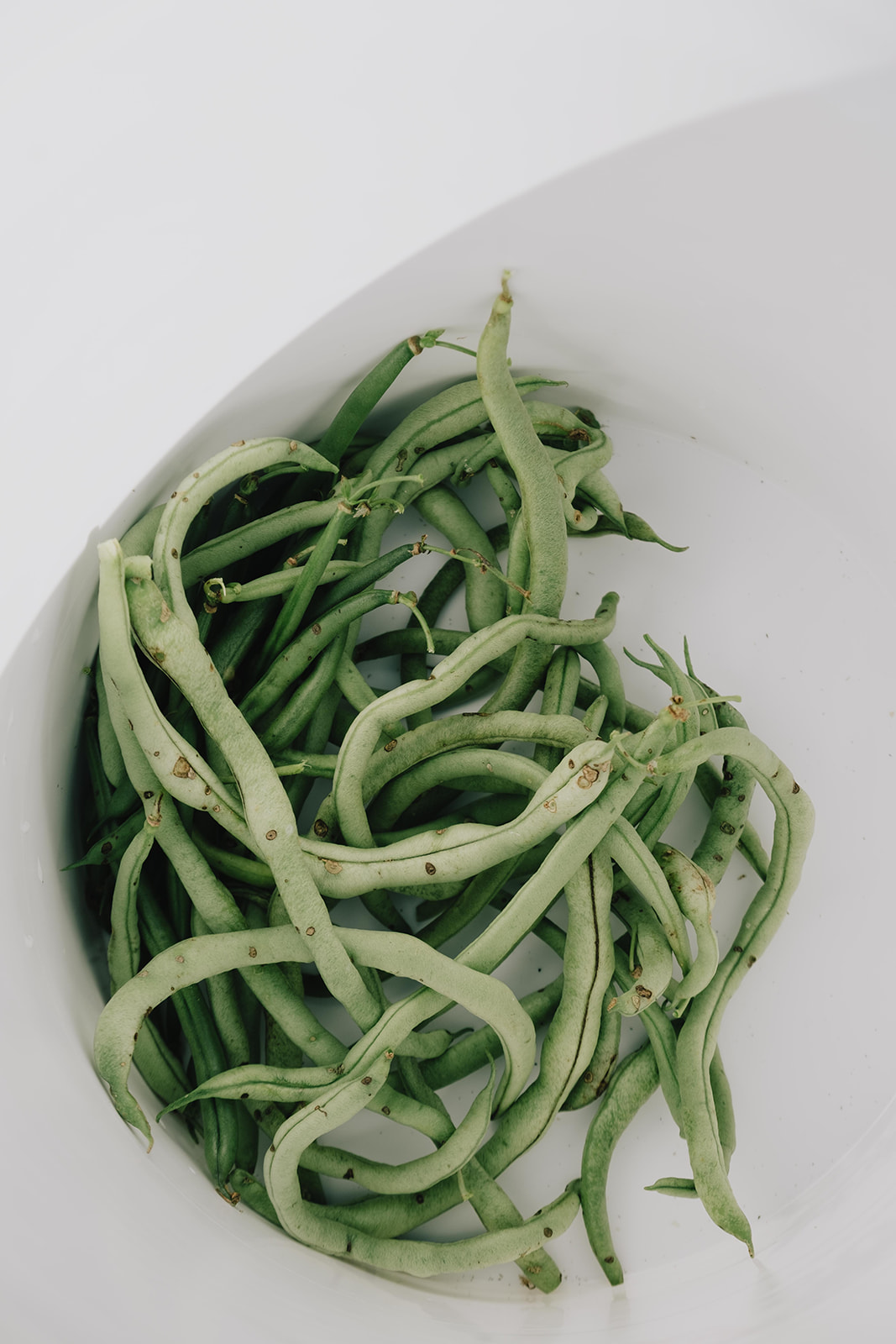A rolling strip of back country-highway in Scottsville, Virginia, leads to Whisper Hill Farm.
This farm is a dream of James and Holly Hammond. Of the 60 acres that they lease and manage, eight are in production for organic produce. Together, they have over a decade of farming experience under their belts (as well as 18 years of marriage). In March of this year, their farm was thrown into a world of uncertainty, as the COVID-19 pandemic hit the states in full force. As businesses and schools were closed across the country, and all but essential workers were forced to stay home, James and Holly’s livelihood was at stake as the farmers markets they depended on to sell their produce were shut down.
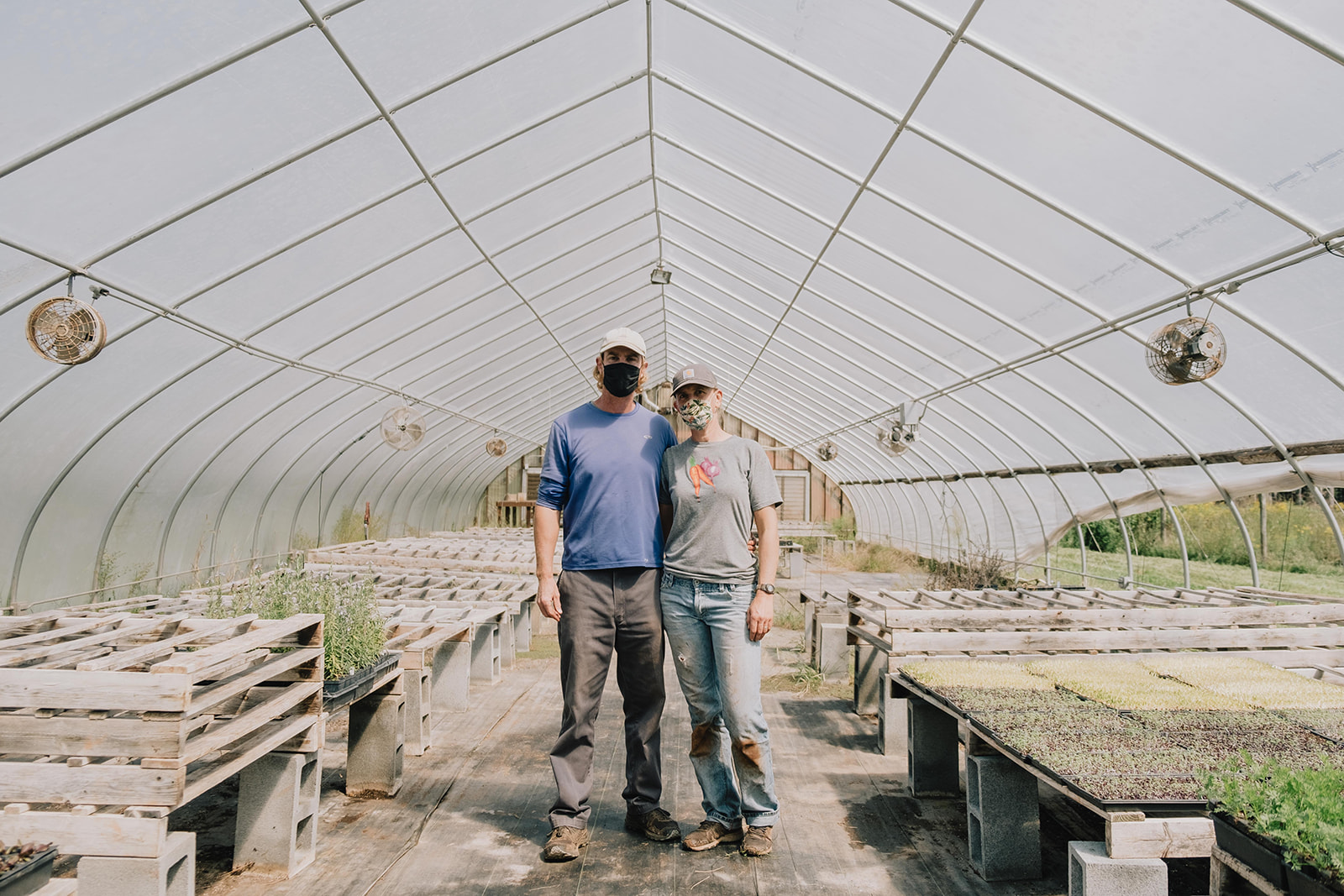
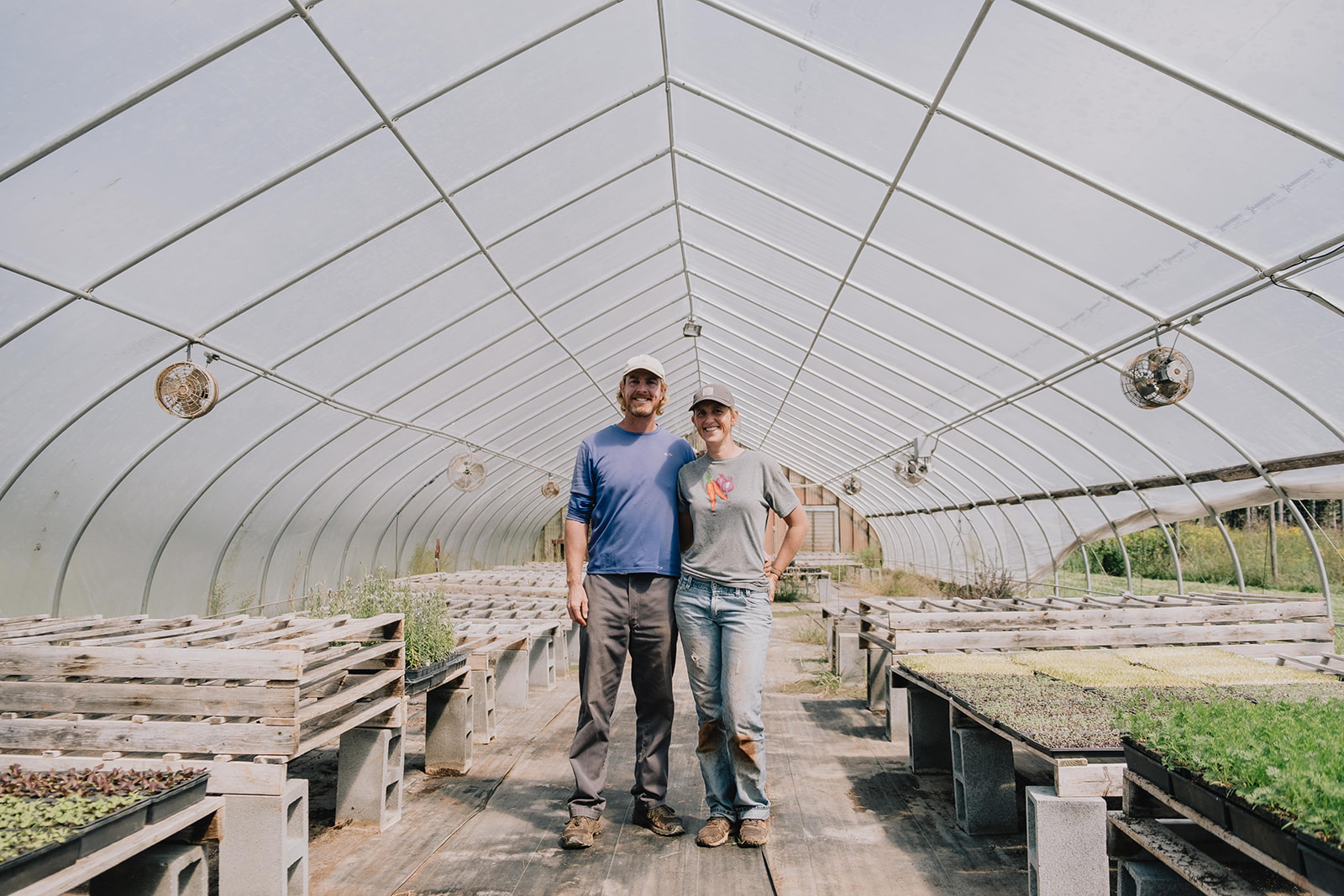
Due to the farm being their only source of income, Holly had some initial fear.
“I had no idea if or how we would make it through,” she said. “I didn’t feel hopeful. I thought to myself, ‘Maybe we should just take a year for ourselves and regroup.’ I think just allowing myself to say ‘we might not do this’ was a comfort in and of itself.”
However, after the initial shock of the world coming undone, Holly jumped into action by putting together a new protocol for the farm.
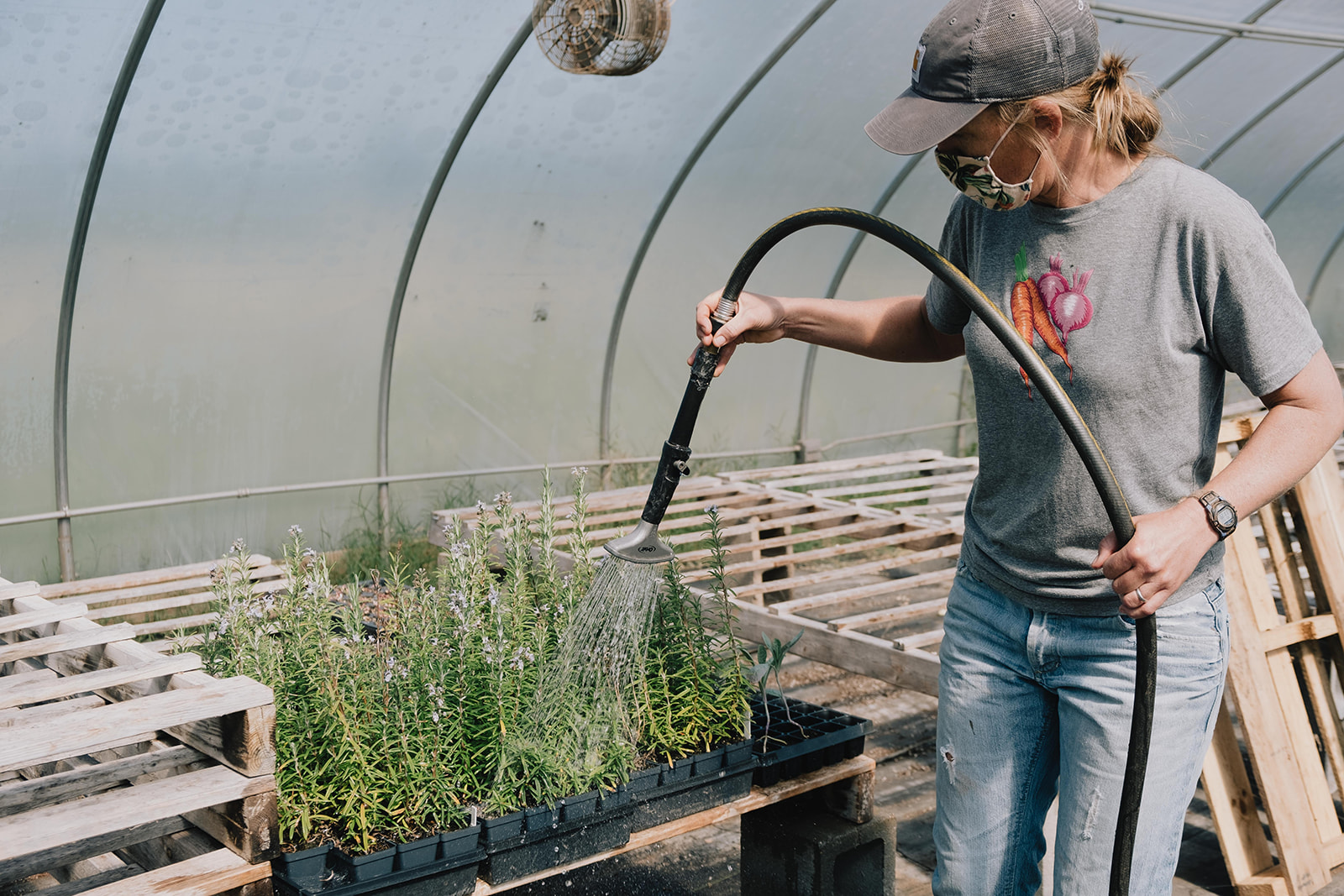
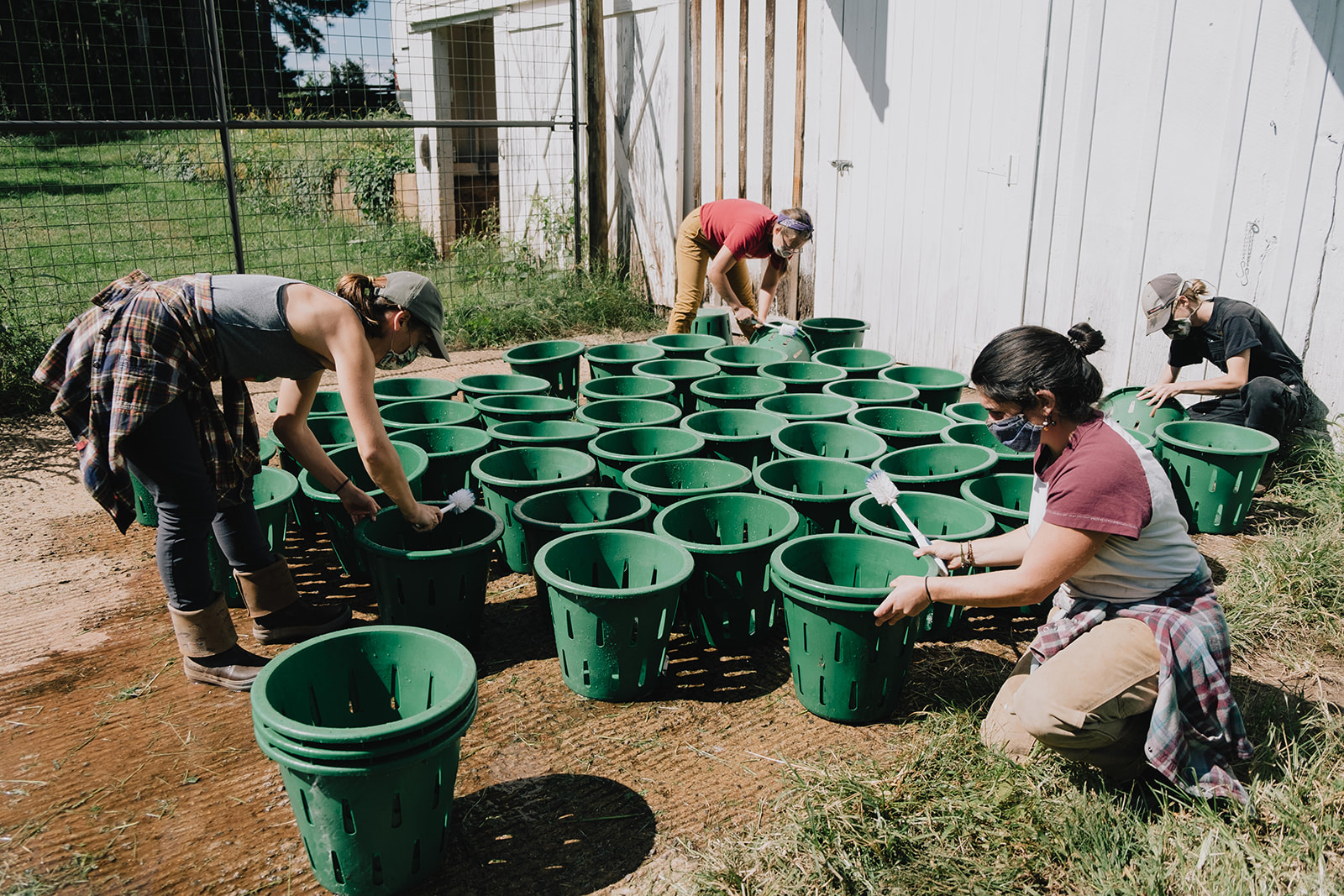
“Having a plan made me feel better. But we were really out of the groove for a while,” said Holly. “We had a lot to navigate in walking our customers through the new transitions, as well as losing a few employees at the beginning of the year and managing the shifts and expectations of our current employees. But it mostly affected us logistically — especially in how we were going to get produce to people.”
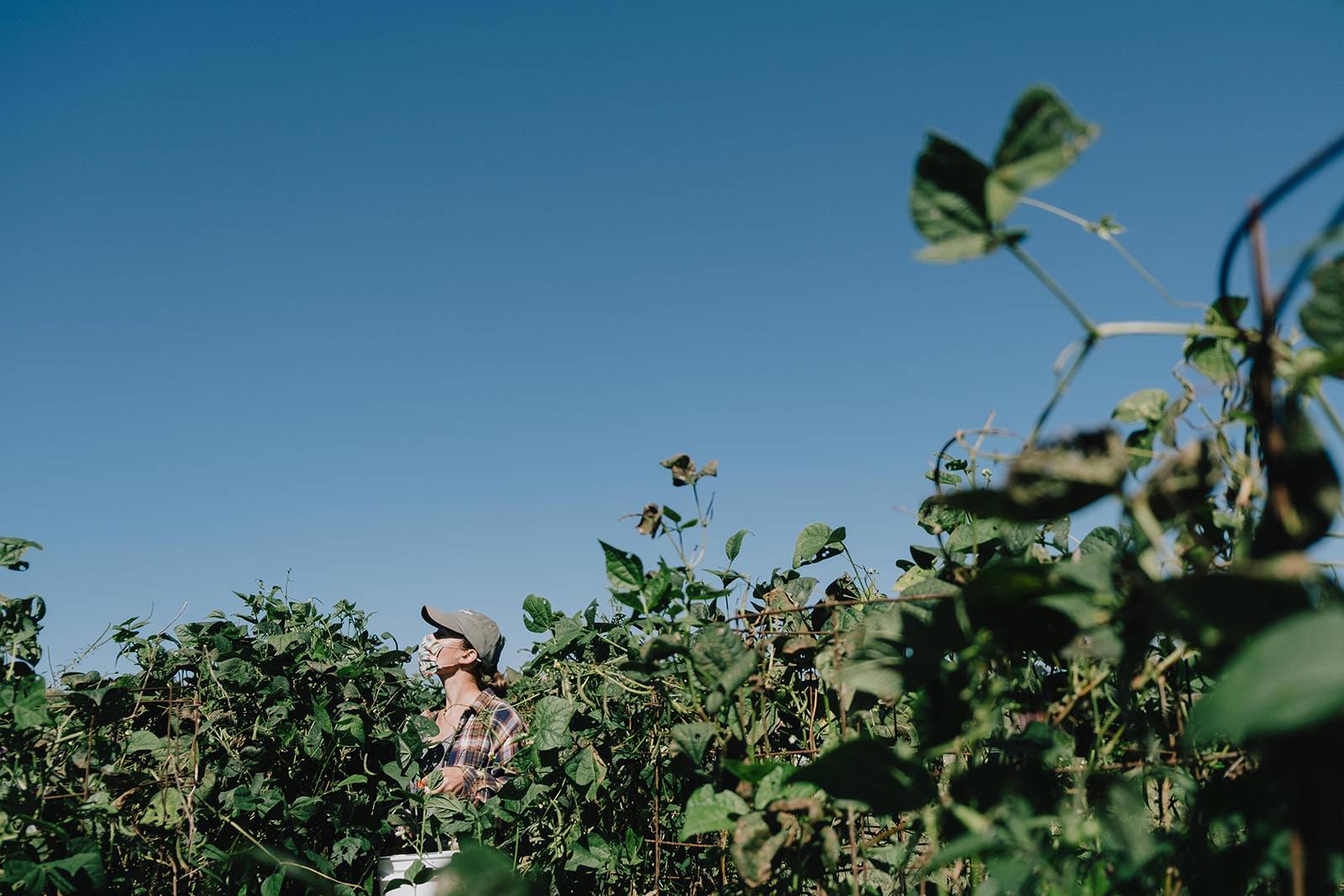
Before COVID-19 hit, James and Holly were operating a 30-member community-supported agriculture (CSA) subscription and doing three Saturday farmers markets a week as well as one on Wednesday. After the pandemic shut down the markets they relied on, the duo had to think fast to adapt to the changing times and provide fresh produce for their customers.
“There was a brief time at the beginning of COVID that we did some drive-through markets, but it wasn’t a large-enough outlet to move the amount of produce we had. We were doing a third or a quarter of the sales that we were before. That’s when we decided to shift more of our focus on CSA. It saved us.” said Holly.
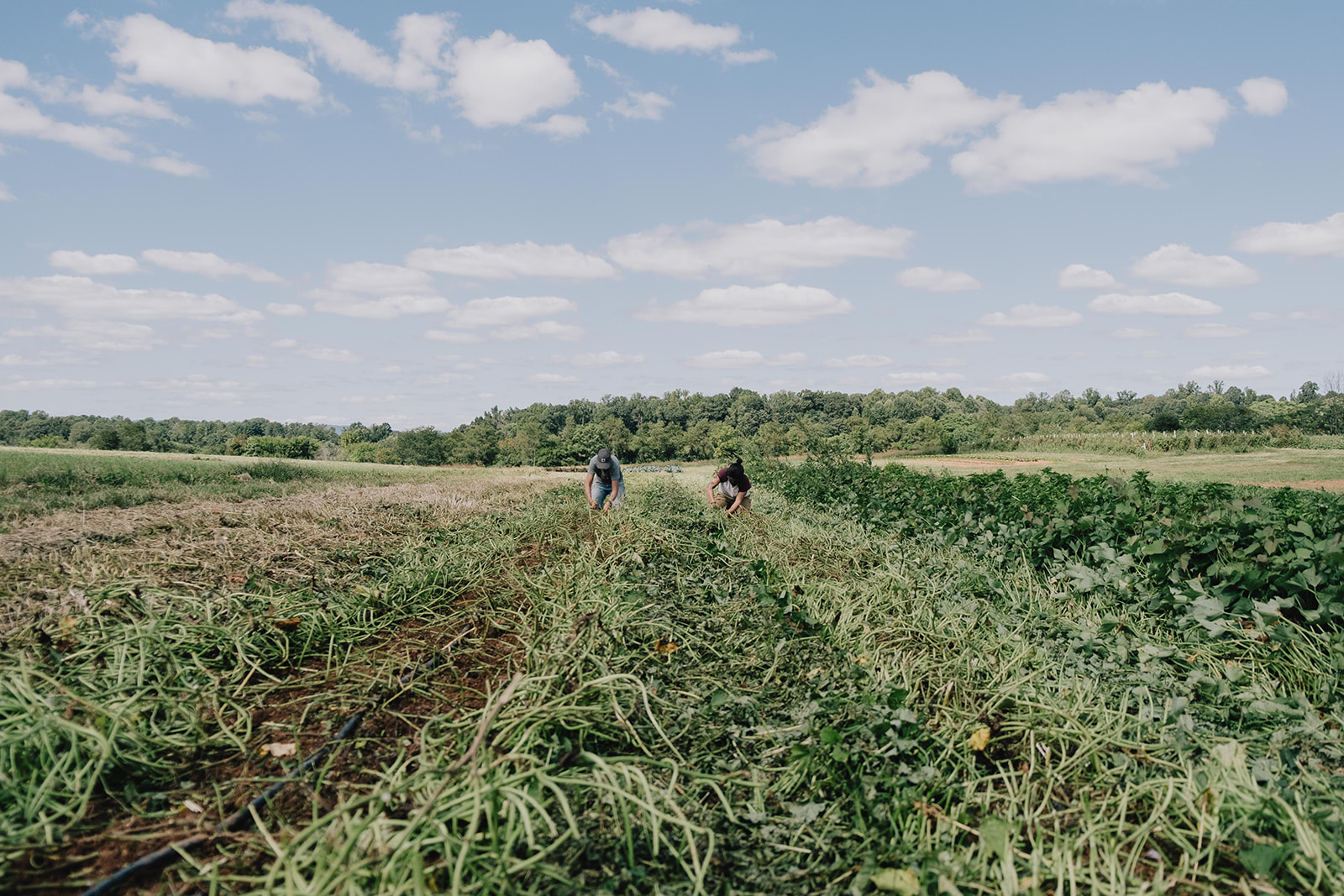
Their CSA membership has more than quadrupled since last year, now boasting roughly 250 members with pickup times scheduled three days a week in two different locations.
“We had an influx of people wanting to secure their spot for healthy produce after the pandemic hit,” said James. “We probably could have gotten a 500 CSA membership if we’d wanted to. The demand was there, but we had never done that large of a CSA, and we had committed to do the drive-through form of markets, so we didn’t want to tax ourselves with too large of a CSA.”
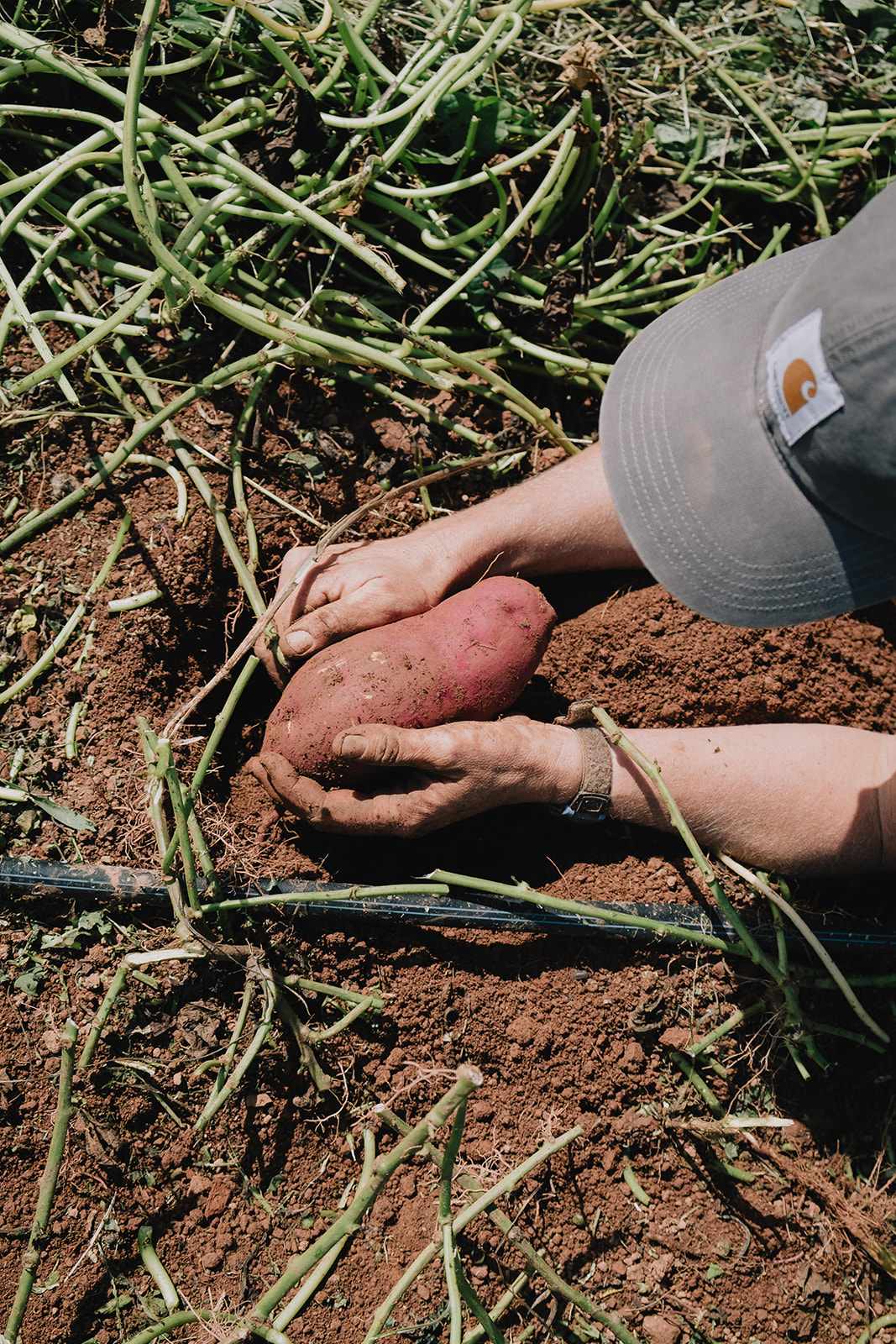
Leney Breeden
This created some extra work on the back end for Holly, which involved updating their website with virtual produce inventory and posting on social media to share information with their customers to stay more connected to them.
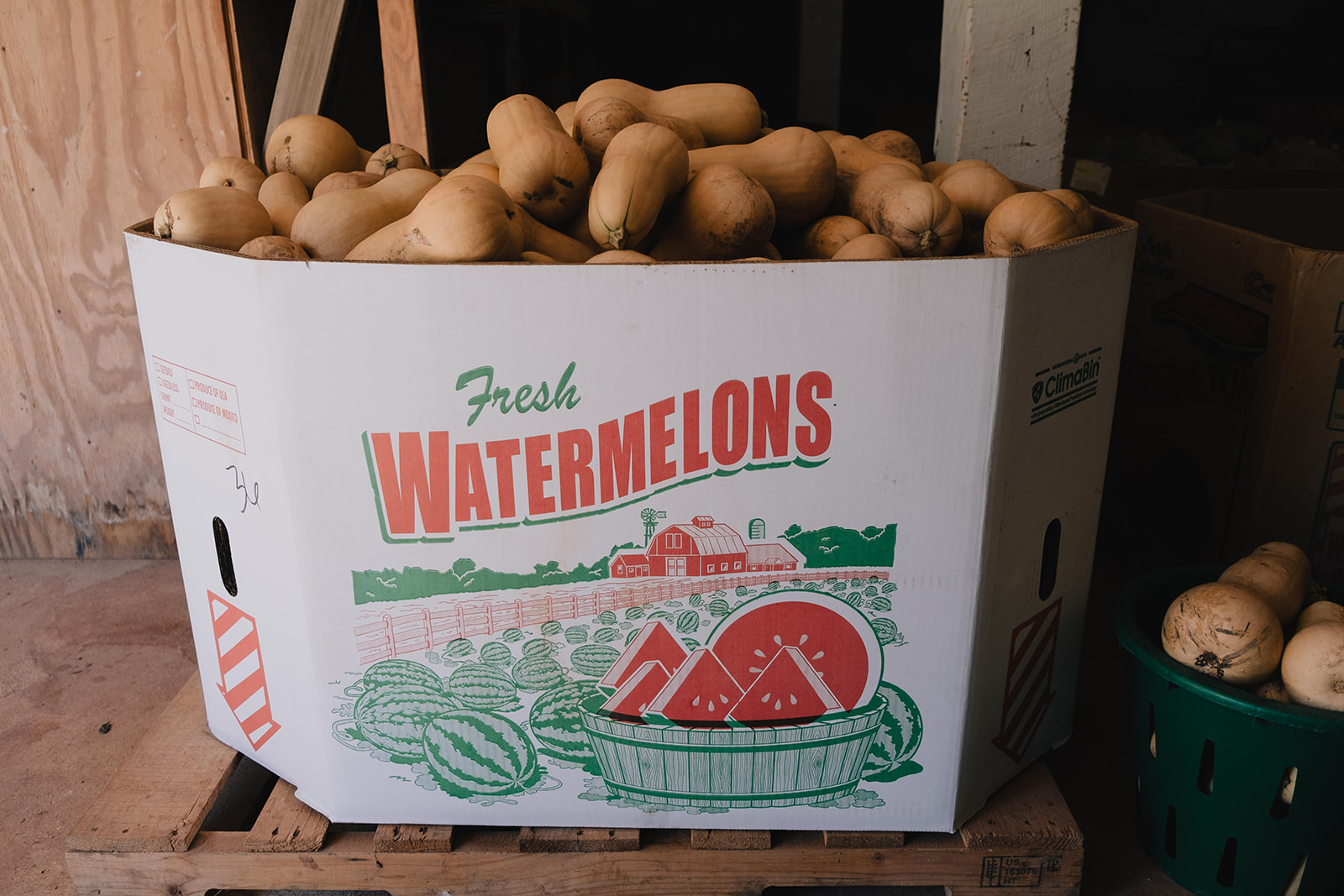
“I didn’t realize until this year and having to hand out bags to people without really interacting with them how much we relied on that face-to-face interaction to fuel our efforts on the farm,” said James.
Holly nodded in agreement. “We love the market. We love seeing people and talking about food and recipes. This year hasn’t been as satisfying, just packing bags and not getting to interact with our customers as much.”
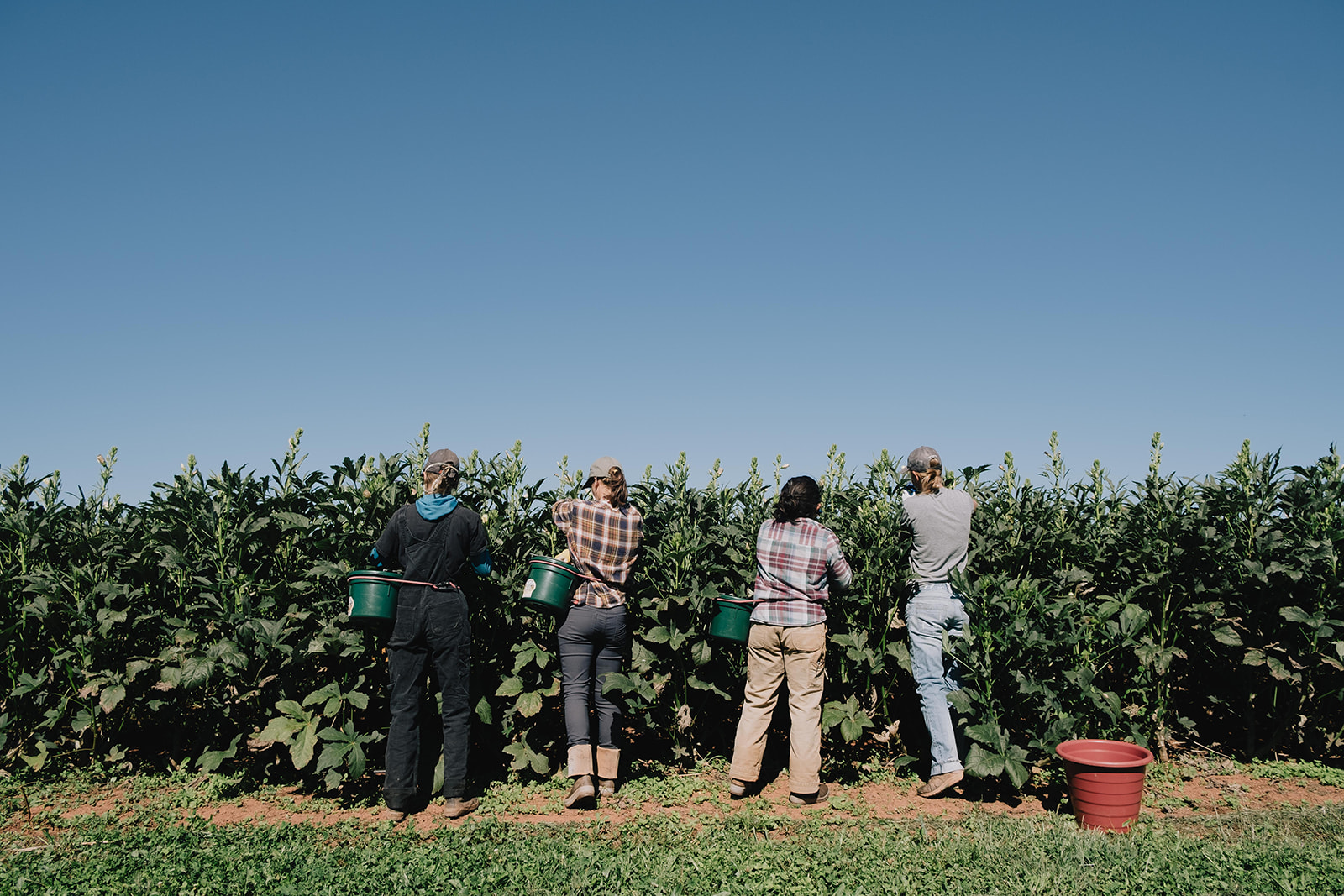
Whisper Hill currently has four employees, all of whom live on site. Having on-farm housing for their employees was important to James and Holly when looking into a spot of their own. Due to the close quarters, new implementations were put into place, including daily temperature checks and paid time off for any of the employees if they were sick (which thankfully no one has been). Because of the nature of this work, and their desire for a tight-knit team to foster trust, camaraderie and good work ethic are important in their day-to-day routines. This was an aspect that benefited their farm a great deal once they had to restrict coming and going from the farm due to the pandemic. It is perhaps this model that attributes to their ability to pull through this tenuous time.
“We were never really that worried because James and Holly did such a great job adapting so quickly to the situation, even despite things changing every day,” said Lauren, an employee who has been involved with Whisper Hill for two seasons now.
“We are so isolated out here together, so we feel pretty safe from the situation on a personal level, our focus more so is how to keep others safe while still providing them produce,” said Brielle, another employee on the farm.
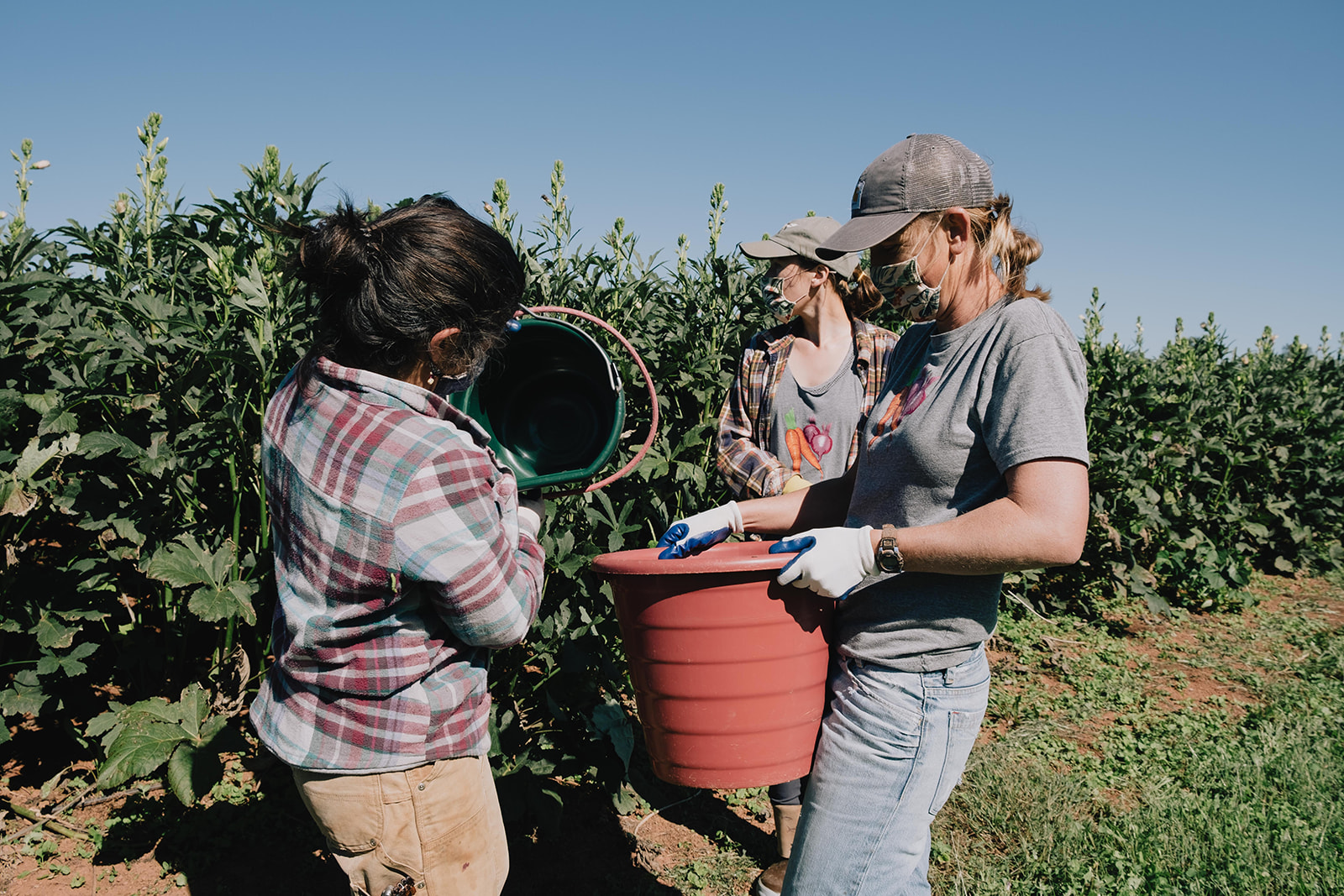
“I think before all of this, the CSA model seemed to be decreasing in popularity. People didn’t like having their bags packed for them, they wanted more choice. But then COVID-19 hit, and they wanted a safe and reliable source of fresh produce. I don’t know if the upward shift in popularity will stay that way, but people are at home more, and they realize they are able to use an entire CSA,” speculated James.
James is already thinking forward to next year.
“Historically we were low on the CSA because before now it seemed like something that was not as popular as it used to be, and so we did four different farmers markets,” he said. “But next year, I think we might do something along the lines of two farmers markets and more CSA just to balance it out a little bit more because it’s kind of nice not relying just on one model. But that’s assuming the demand is still there for CSAs. We hope it sticks though, because we are really enjoying the balance of doing half and half.”
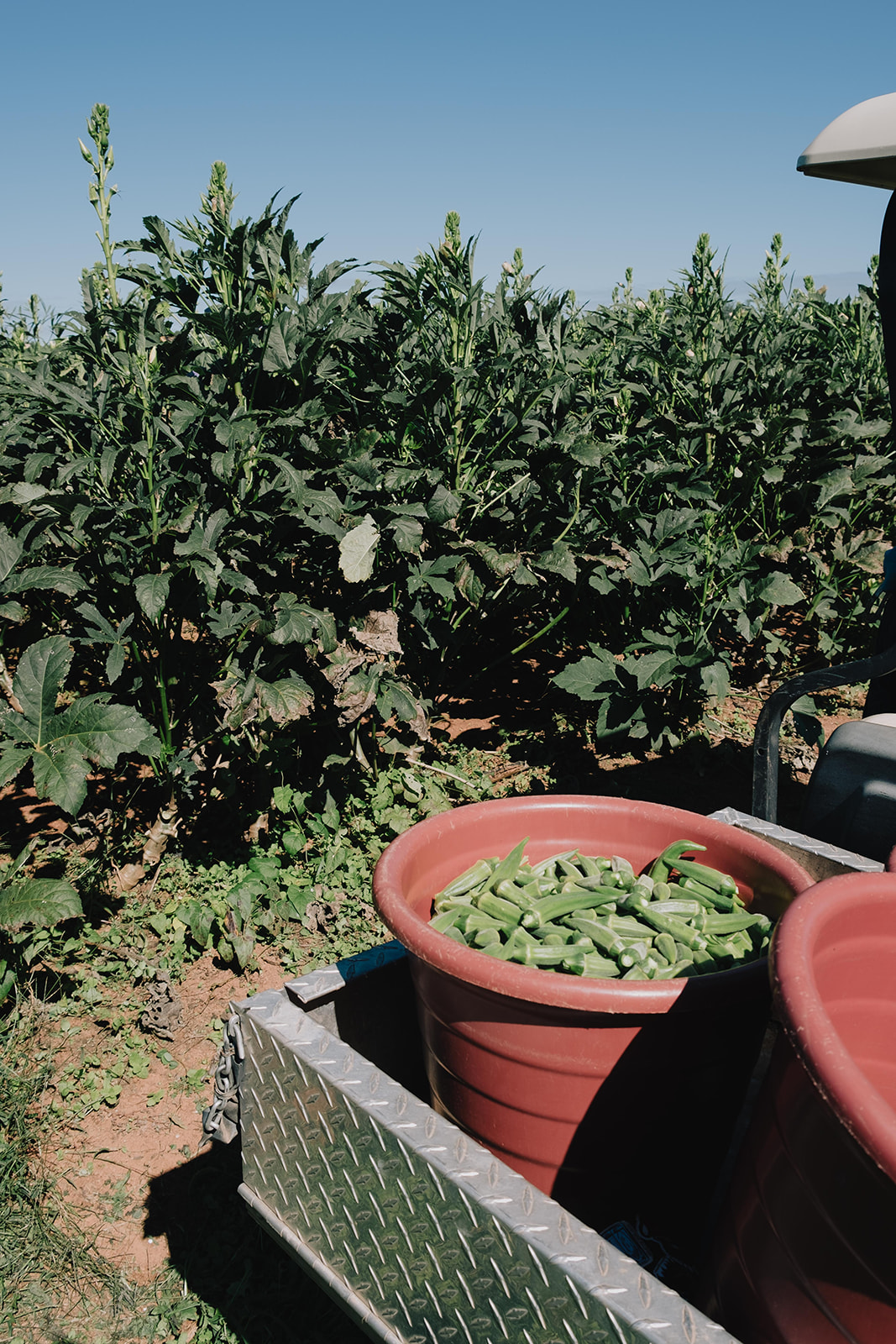
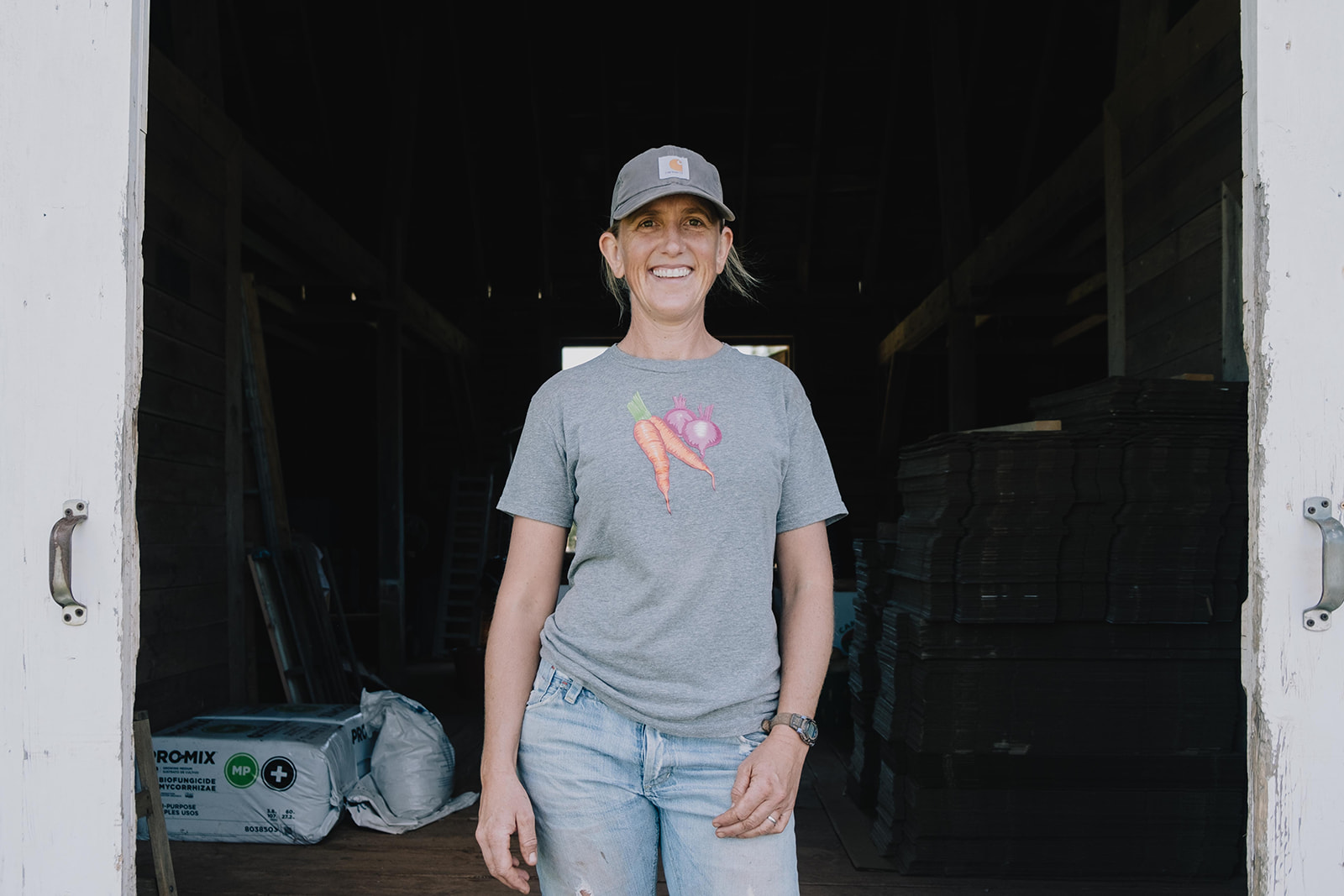
“I just love growing food. I don’t know that every farmer loves it, but there just isn’t a day I wake up and think ‘ugh I have to go to work.’ In my spare time I just want to go weed,” said Holly. “I know that sounds crazy, but I just genuinely love this work and what I do. Even if we didn’t do this for a living, I would probably just be an extreme gardener.”
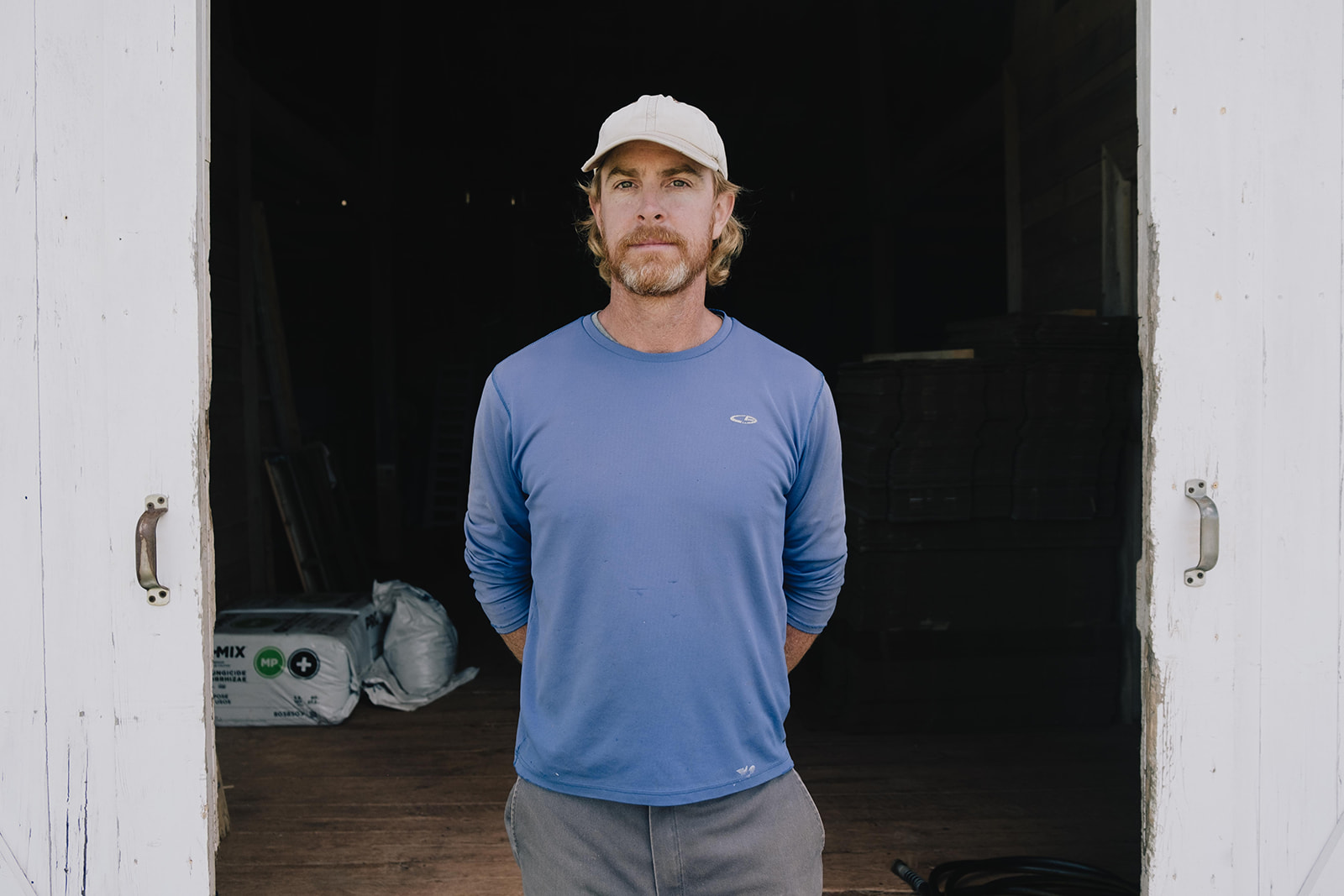
“I like doing something that’s meaningful. There are lots of jobs that are meaningful, but this is the one that most appeals to me. Because I love being in nature, I enjoy hard work, I like growing the cover crops, taking care of the farm and seeing the fields change over the course of a season is really satisfying,” said James.
“I am tired of this year in a lot of ways, but bottom line is that I like working with people and I like what we do here, and I am hopeful.” James added.
“Farming involves always adjusting to the weather. In a lot of ways, the pandemic is no different,” said Holly.
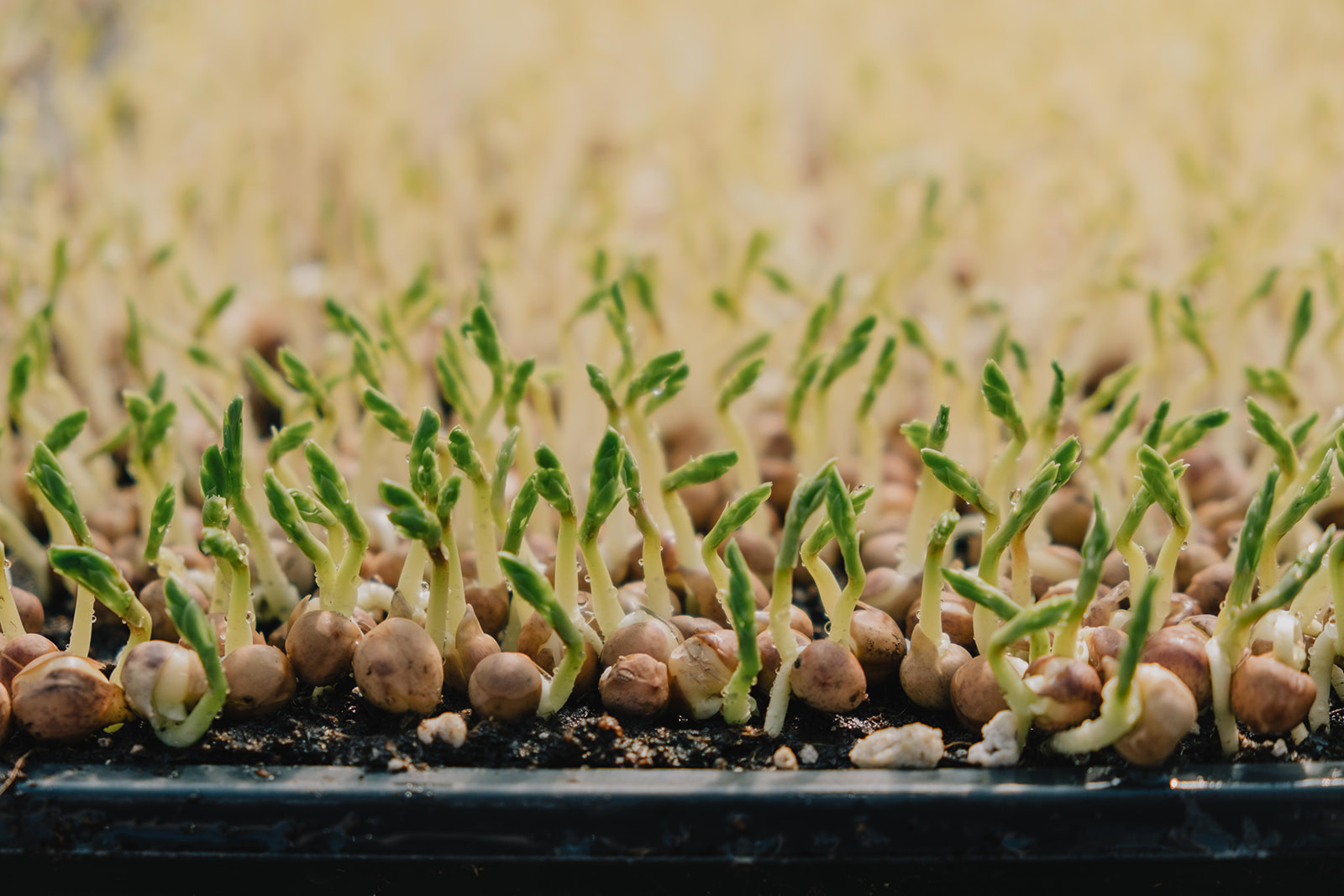
The Hammonds, like many organic farmers, believe strongly in being good stewards of the land, and have hopeful and optimistic viewpoints when it comes to their work.
“In all of this, our mindset is to take the good from 100 years ago, and the good from today, in the way of mechanization, and blend it all together for a more thoughtful agriculture,” said James.
Incredibly, despite the pandemic and all of its unknown, this has proven to be Whisper Hill’s second best sales year since they started. Perhaps there is something to be said for adversity being the needed impetus for progress.
